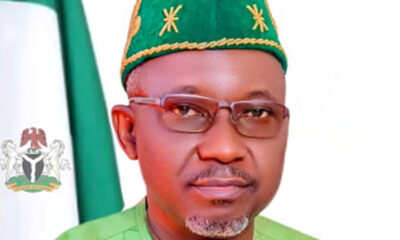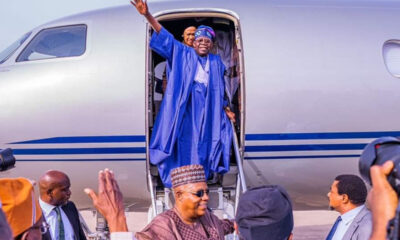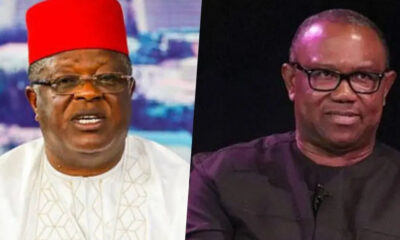Africa
Tinubu rejects Niger coup leaders’ offers for direct negotiations
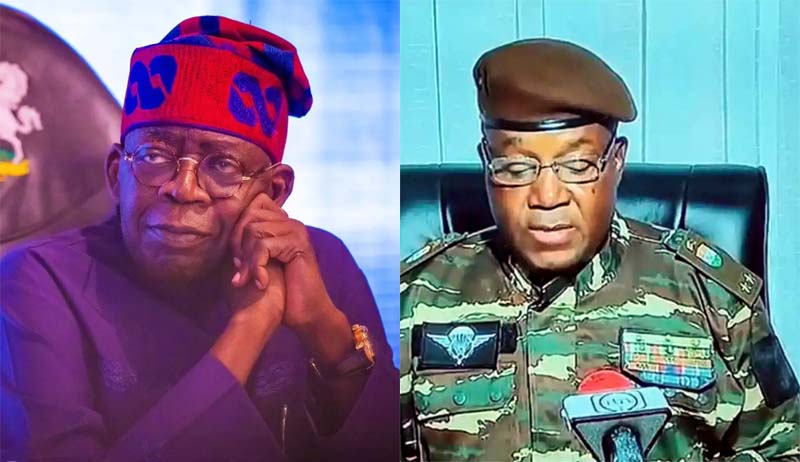
Tinubu rejects Niger coup leaders’ offers for direct negotiations
As efforts to resolve the Niger crisis continue, overtures by the head of the military junta in that West African country, General Abdourahamane Tchiani, to have direct access and discussion with President Bola Ahmed Tinubu has been outrightly rejected by the Nigerian leader, Empowered Newswire reports.
According to diplomatic sources, consenting to such direct one-on-one talks is both an assault on democratic governance in the region and a disrespect to the still-detained Nigerien President, Mohamed Bazoum.
Sources close to the Niger’s Permanent Mission to the United Nations in New York confirmed that President Tinubu was approached with Tchiani’s request by a group of Muslim Ulamas who had met with him in Abuja about a month after the Niger coup.
The Ulamas conveyed the request of General Abdourahamane Tchiani to have a direct one-on-one interaction with the Nigerian President who is also the Chairman of the ECOWAS Authority of Heads of State and Government as a possible way to resolve the crisis.
In the meeting held in Abuja on August 24, the sources said President Tinubu point blank ruled out any such interaction with the head of an illegal government that came to power through a military Coup toppling a democratically elected government of Niger.
READ ALSO:
-
Substitute Martinelli fires Arsenal to late win over Manchester City
-
FRSC denies seeking permission to carry firearms
-
Three journalists detained in Ethiopia, transferred to military camp
Nigerian government sources also confirmed that indeed President Tinubu’s position is that having a direct interaction with Tchiani would improperly legitimise a coupist whose government is not even recognised by ECOWAS. “The President outrightly rejected the overture, insisting that ECOWAS leaders would be disappointed besides the fact that such an interaction would send the wrong signal about democratic governance in the continent.”
While many in the African diplomatic community especially are of the view that President Tinubu’s rejection of a direct talk with Tchiani at this point would indeed be a bad signal, the impasse over the Niger crisis has persisted without much any ray of hope. Diplomats added that a concerted front among President Tinubu and other ECOWAS leaders remained an imperative in dealing with the military takeover.
But Niger diplomats in New York also argued that sending envoys from the Nigerian government who are themselves former military government beneficiaries to the coupists in Niger is itself a conflicting signal although the Niger military junta eventually interacted with them.
It would be recalled that former head of state General Abdusalami Abubakar and the Sultan of Sokoto His Eminence Sa’ad Muhammad Abubakar had visited Niger to discuss possible resolution on August 19, few days before the Niger Ulamas discussed with President Tinubu. Before the visit to Niger by both Abdusalami and the Sultan, the former head of state had travelled to Niamey but was not able to meet with the leaders of the new military junta.
Later on the 9th of August, Emir Sanusi Lamido Sanusi released visuals of a successful meeting with the Coup Leaders.
Tinubu rejects Niger coup leaders’ offers for direct negotiations
Africa
Chad’s military ruler Derby declared winner of presidential election, opposition kicks
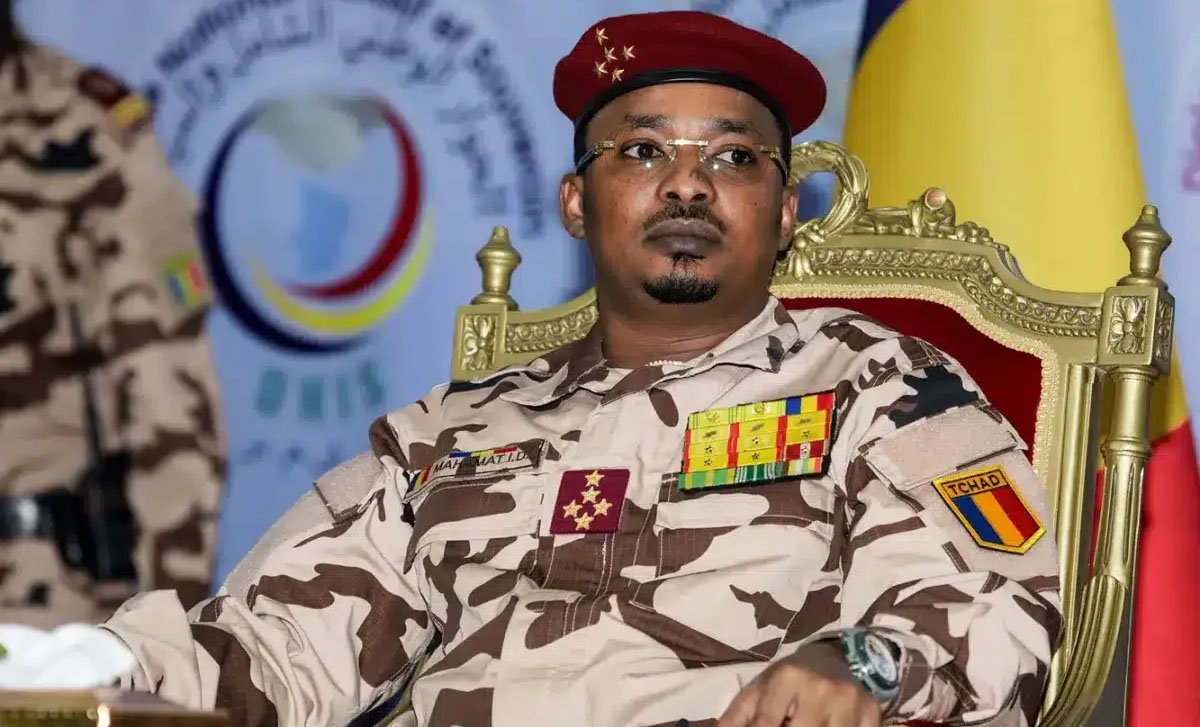
Chad’s military ruler Derby declared winner of presidential election, opposition kicks
Chad’s military leader, Mahamat Deby Itno, was declared the winner of this week’s presidential election, according to provisional results released Thursday. The results were contested by his main rival, Prime Minister Succès Masra.
The national agency that manages Chad’s election released results of Monday’s vote weeks earlier than planned. The figures showed Deby Itno won with just over 61% of the vote, with the runner-up Masra falling far behind with over 18.5% of the vote. Gunfire erupted in the capital following the announcement, though it was unclear if it was celebratory.
Preliminary results were initially expected on May 21.
Chad held its long delayed presidential election following three years of military rule, a vote that analysts widely expected the incumbent to win. Deby Itno, also known as Mahamat Idriss Deby, seized power after his father, who spent three decades in power, was killed fighting rebels in 2021.
READ ALSO:
- Detained reporter Daniel Ojukwu regains freedom after public outcry
- Rivers Assembly speaker says house leadership intact
- No change in leadership of Rivers assembly, clerk disowns Fubara’s faction
The oil-exporting country of nearly 18 million people hasn’t had a free-and-fair transfer of power since it became independent in 1960 after decades of French colonial rule.
Hours ahead of Thursday’s announcement, Masra published a speech on Facebook accusing the authorities of planning to manipulate the outcome.
During the 11-minute speech, Masra appeared in a blue suit at a podium with the national flag in the background and claimed victory, saying the incumbent was planning to reverse the outcome of the vote. He called on Chad’s military, police and other security forces to stop following Deby Itno’s orders.
“These orders will lead you to side with the wrong side of Chad’s history, these orders will lead you to fight your brothers and sisters, these orders will lead you to commit the irreparable and unforgivable,” he said in the speech. “Refuse to obey these unjust orders!”
There was no immediate response from the president’s office.
Chad’s military ruler Derby declared winner of presidential election, opposition kicks
Africa
Civil societies, Togo president on war path over new constitution eliminating elections

Civil societies, Togo president on war path over new constitution eliminating elections
The hope of having new leader in Togo has been dashed following the abolition of presidential elections in the West Africa country.
The development follows the signing of a controversial and widely condemned new constitution by President Faure Gnassingbe
The new constitution does not allow for election to the highest office in the land, an arrangement that will see the Gnassingbes consolidate their hold on power and extend their six-decade-long rule.
A statement from Gnassingbe’s office on Monday stated that, under the new legislation, only the parliament will have the power to select the president, eliminating direct elections.
According to Africa News, the election commission on Saturday announced that Gnassingbe’s ruling party had won a majority of seats in the nation’s parliament.
The report revealed that there was a crackdown on civic and media freedoms ahead of the vote, as the government banned protests against the proposed new constitution and arrested opposition figures.
READ ALSO:
- Rivers crisis festers as new factional Speaker emerges
- Cybersecurity levy suspension tears lawmakers apart, speaker overrules
- EFCC to arraign Sirika, daughter over fresh N2.7 billion contract scam
Also, the electoral commission banned the Catholic Church from deploying election observers.
In mid-April, a French journalist who arrived to cover the elections was arrested, assaulted and expelled. Togo’s media regulator later suspended the accreditation process for foreign journalists.
Provisional results showed the ruling Union for the Republic (UNIR) party won 108 out of 113 seats in parliament, and 137 out of 179 positions in the senate.
The new constitution also increases presidential terms from five to six years and introduces a single-term limit.
However, the almost 20 years that Gnassingbe has already served in office would not count toward that tally.
Togo has been ruled by the same family for 57 years, initially by Eyadema Gnassingbe and then by his son, Faure Gnassingbe, who took office after elections that the opposition described as a “sham.”
The political opposition, religious leaders and civil society say the proposed new constitution makes it likely that Gnassingbe will stay on when his mandate expires in 2025.
They also fear that the creation of a figure similar to a prime minister, to be selected from the ruling party, could become another avenue for Gnassingbe to extend his grip on power even beyond that new term.
Civil societies, Togo president on war path over new constitution eliminating elections
Africa
Father mourns 14-year-old daughter poisoned at school, says ‘I’ve failed you my baby’

Father mourns 14-year-old daughter poisoned at school, says ‘I’ve failed you my baby’
A father has mourned his 14-year-old daughter, Nomfundo Palesa Tyler Khumalo, who was allegedly poisoned at her school in South Africa.
It was gathered that the incident happened on 8 April 2024 and she passed away on 25 April.
 Details surrounding the circumstances of her death remain unclear.
Details surrounding the circumstances of her death remain unclear.
A murder case has been opened, and investigations are underway.
The family of Nomfundo is currently struggling to deal with the loss and seeking answers as to why and by whom she was targeted.
READ ALSO:
- Zamfara APC defends Mattawale, says protesters are rented crowd
- SERAP sues Wike, 36 govs over N5.9tn, $4.6bn loans
- Chelsea thrash West Ham to stay on track for Europe
Nomfundo’s father, Gift, on Sunday, May 5, wrote a heartfelt message on X to pay tribute to her.
“Never in my wildest dreams did I think you would end up on this page I’ve failed you my baby , should’ve protected you better we even spoke about you being home schooled after you recover unfortunately.. I’m so sorry If Possible I’d easily give up my life for yours,” he wrote on Sunday, May 5.
In an earlier post, he wrote: “I wish the after life is kinder to souls as precious as yours , there is no boundry for my love to you my baby Not even Death itself Don’t forget to visit us in our dreams more exp your Mother It’s never goodbye when there an after life promised I’ll see you soon my child.”
Father mourns 14-year-old daughter poisoned at school, says ‘I’ve failed you my baby’
-

 metro3 days ago
metro3 days agoCleric allegedly sets wife’s house ablaze following prayer disagreement in Ekiti
-

 Auto2 days ago
Auto2 days agoBKG holds all-inclusive Lagos Motor Fair, auto parts expo June 4-6
-

 Sports14 hours ago
Sports14 hours agoEPL: Man City go top after thrashing Fulham
-
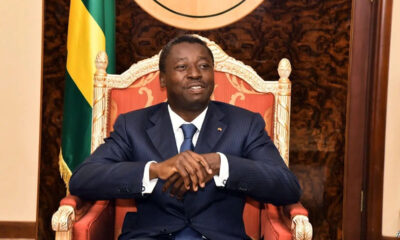
 Africa3 days ago
Africa3 days agoCivil societies, Togo president on war path over new constitution eliminating elections
-

 metro14 hours ago
metro14 hours agoWhy I claimed Ooni is my father – Man recants, apologises (+ VIDEO)
-
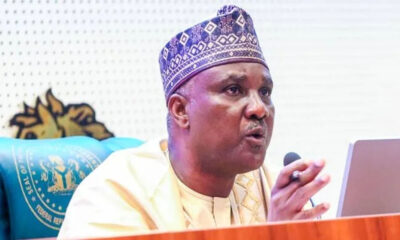
 News3 days ago
News3 days agoCybersecurity levy suspension tears lawmakers apart, speaker overrules
-

 metro3 days ago
metro3 days agoReport of killing 21 soldiers in Anambra not true – Police
-
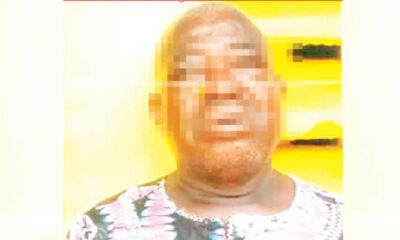
 metro3 days ago
metro3 days agoLandlord arrested for impregnating tenant’s teenage daughter

